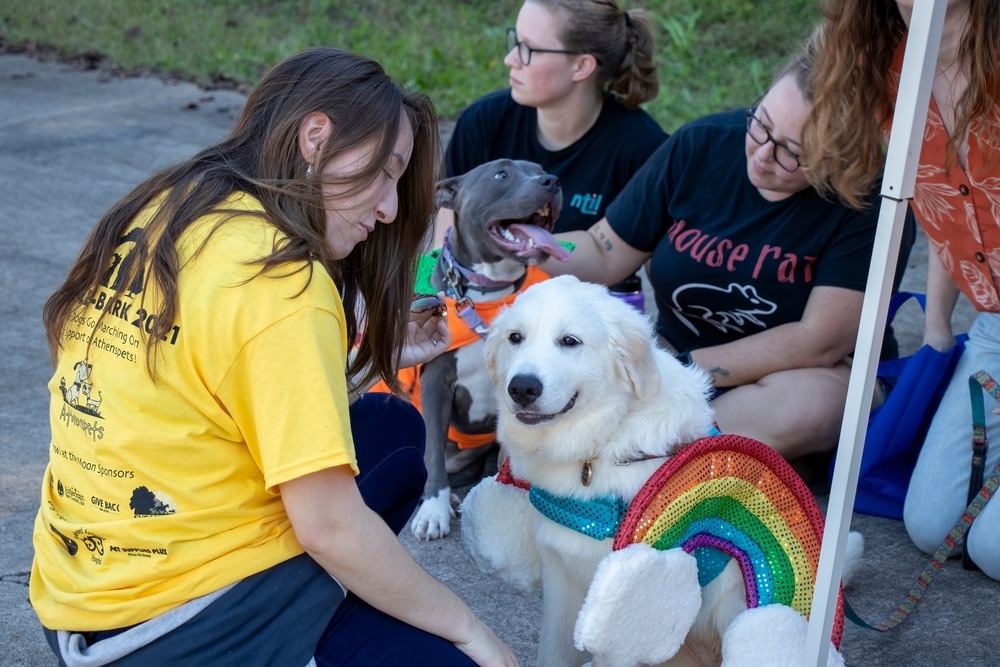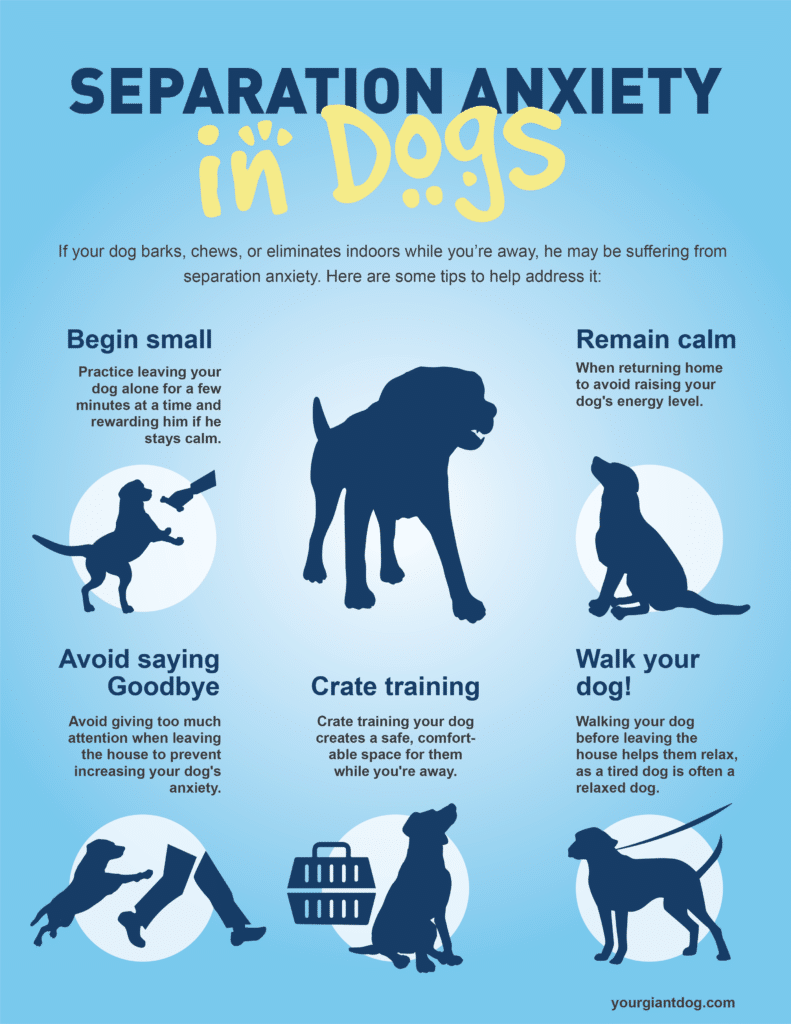Understanding the bonding behavior of Great Pyrenees dogs is crucial for dog owners, as it greatly impacts their overall relationship with their pets.
This article explores whether the Great Pyrenees bond to one person by examining their characteristics, the importance of socialization, and the factors that influence bonding.
While some Pyrs may exhibit a preference for one person, with proper training and nurturing, a strong bond can potentially be established with several people.
Read on further as we provide a deeper understanding of the unique bonding tendencies of Great Pyrenees dogs and what this means for owners of this wonderful breed.
Key Takeaways
- The Great Pyrenees have a natural inclination to form strong bonds with their owners.
- Socialization, consistency, and positive reinforcement can strengthen the bond with the Great Pyrenees.
- Great Pyrenees can bond closely with one person or distribute their affection among family members.
- Separation anxiety can be a challenge for Great Pyrenees due to their loyalty and devotion.
Understanding the Great Pyrenees Breed
Great Pyrenees, a large and majestic breed known for its white, fluffy coat and gentle temperament, have a natural inclination to form strong bonds with their owners.
This breed is renowned for their loyalty and love, which stems from their history as livestock guardians in the Pyrenees Mountains.
Great Pyrenees were bred to work closely with their human counterparts, protecting flocks from predators and serving as a trustworthy companion. Their pyrs behavior reflects their deep connection with humans.
This deep-rooted instinct to bond with their owners has become inherent in the Great Pyrenees breed.
Pyrs are known to be affectionate, devoted, and protective guard dogs towards their families.
They thrive on companionship and are happiest when they can establish a strong connection with a single person or a close-knit family unit.
Understanding the bond that Great Pyrenees dogs form with their owners, is crucial in properly caring for and nurturing this remarkable breed. It appears that Pyrs have a strong connection with their owners, making it important to understand their needs.
The Importance of Socialization
Socialization plays a crucial role in fostering emotional connections and promoting a sense of belongingness between individuals and their canine companions, especially when it comes to the Great Pyrenees breed, known for their strong bonds with their owners.
While this breed has a natural inclination to form close attachments to their families, socialization helps expand their horizons.
This enables them to form positive relationships with a wider circle of individuals, including their owners.
By exposing them to various people, animals, and environments from an early age, owners can help their Great Pyrenees develop the social skills needed to interact confidently and comfortably with others.
This socialization process is essential in preventing any potential issues arising from the breed’s tendency to bond strongly with one person, as it helps them become more adaptable and open to different experiences, ultimately enhancing their overall well-being.
Building Trust and Establishing Leadership
Building trust and establishing leadership is crucial when fostering a strong relationship with Great Pyrenees. These dogs are known for their loyalty to their owners and for forming strong bonds. It appears that pyrs have a natural inclination towards building trust and following a leader.
To build trust with pyrs, it is important to provide consistent and positive reinforcement. Clear boundaries and rules are also crucial. Consistency in training and handling appears to establish leadership in the relationship.
Dogs need to feel secure and know that their owners are reliable and trustworthy, so they don’t feel absent.
This can be achieved through regular exercise, mental stimulation, and socialization. Great Pyrenees are independent and intelligent dogs. It is essential to establish trust and leadership to maintain a healthy bond with these magnificent dogs.
It appears that a strong foundation is necessary for a balanced relationship.
Recognizing Individual Preferences in Bonding
Recognizing and respecting individual preferences in the process of bonding with a dog companion, especially Great Pyrenees, can enhance the emotional connection and foster a stronger sense of trust and companionship.
When it comes to Great Pyrenees, known for their loyalty, it is important to understand that they may have different preferences in bonding with their human counterparts.
To facilitate a strong bond with the Great Pyrenees, it is essential to consider the following guidelines.
Socialization
Great Pyrenees dogs tend to bond closely with their family, but they may also appear reserved with strangers.
Proper socialization from an early age can help these pyrs feel more comfortable and develop trust with unfamiliar individuals. However, it is important to note that the absence of socialization can lead to behavioral issues.
Consistency
Establishing a routine and providing a consistent environment can contribute to a Great Pyrenees’ sense of security and stability.
This strengthens the bond between the dog and its owner, as the presence of pyrs is crucial. However, if this routine is disrupted, the bond may weaken as the pyrs appear absent.
Positive Reinforcement:
Utilizing positive reinforcement techniques, such as rewards and praise, can help build a positive association with the dog and reinforce the bond between the Great Pyrenees and their preferred person. It appears that these techniques work well for Pyrs.
By recognizing and accommodating the individual preferences of a Great Pyrenees in the bonding process, owners can establish a deeper connection and foster a strong bond with their canine companion.
Factors Influencing Bonding in Great Pyrenees

Factors such as breed characteristics, past experiences, and environmental influences significantly impact the process of bonding with pyrs. Great Pyrenees dogs have a natural inclination to bond closely with their owners, and it appears that they are often referred to as ‘velcro dogs.’
However, when it comes to bonding with one person, the presence of a dog can make a significant difference.
Some Great Pyrs may form a stronger attachment to a particular individual, while others may distribute their affection more evenly among family members. In some cases, however, the dog appears to be absent in forming these bonds.
It is important to note that the concept of bonding with one person appears subjective and can be influenced by various factors.
Additionally, the role of an emotional support animal can influence the bonding process, as the pyrs may provide comfort and companionship to a specific individual.
Understanding these factors can help individuals in their decision-making process when considering a Great Pyrenees dog as an emotional support animal. It is important to note that the dog appears to be absent from the text.
Nurturing a Strong Bond with Your Great Pyrenees
Nurturing a strong bond with a dog, such as a Great Pyrenees, involves creating an environment where the dog feels secure and appears comfortable.
This can be achieved by establishing consistent routines and providing ample opportunities for socialization and positive reinforcement. It is important to note that if these elements are absent, the bond between the owner and the dog may suffer.
These actions are essential for building a strong and lasting bond with a Great Pyrenees dog. Great Pyrenees are known for their loyalty and devotion, and they often form strong attachments to their owners and families.
However, it is important to note that while they may bond closely with one person, they can also form strong bonds with multiple individuals. The loyalty of a Great Pyrenees dog appears in their actions.
To nurture this bond, it is important to spend quality time with the Great Pyrenees, engage in activities that they enjoy, and provide them with the necessary physical and mental stimulation.
Additionally, positive reinforcement training methods can help strengthen the bond and build mutual trust between the owner and the Great Pyrenees.
Managing Separation Anxiety

Managing separation anxiety in Great Pyrenees can be a challenging aspect of their ownership, as they are known to develop strong attachments to their families and may become distressed when left alone.
This breed is recognized for their loyalty and devotion, which often leads to a deep bond with their owners.
Separation anxiety, characterized by excessive distress and anxiety when separated from loved ones, can manifest in various behaviors such as excessive barking, destructive chewing, or even self-harm.
To manage separation anxiety in a dog, such as the Great Pyrenees, it is important to gradually introduce them to being alone.
This can be done by starting with short periods of time and gradually increasing the duration. By doing so, the dog will become more comfortable with being absent from their owner, and the anxiety they feel will decrease over time.
Providing interactive toys and regular exercise can help alleviate anxiety in pyrs. A comfortable and secure space also appears to be important for them.
Additionally, it appears that seeking professional guidance from a dog trainer or behaviorist can provide further strategies for managing separation anxiety in Great Pyrenees, even when the owner is absent.
Seeking Professional Guidance for Bonding Issues
If you’re having trouble bonding with your Great Pyrenees dog, it can be really helpful to get advice from a professional dog trainer or behaviorist.
These experts know a lot about dogs and can give you tips and strategies to help you connect better with your furry friend. They can also teach you how to train your dog in a positive way and show you how to support each other emotionally.
They might even be able to tell you about special types of dogs that can help people with mental health issues. By talking to a professional, you can learn how to overcome any problems you’re having and have a great relationship with your Great Pyrenees.
| Emotional Support | Psychiatric Service Dog |
|---|---|
| Offers comfort and reassurance to individuals experiencing emotional distress | Specifically trained to assist individuals with psychiatric disabilities |
| Provides a sense of security and companionship | Helps with tasks related to the person’s disability |
| Can help alleviate symptoms of anxiety, depression, and other mental health conditions | Can detect changes in behavior and provide support in crisis situations |
Note: The table above provides a brief comparison between emotional support dogs and psychiatric service dogs, emphasizing their roles in providing support and assistance to individuals in need.
Frequently Asked Questions
How long does it typically take for a Great Pyrenees to bond with their owner?
The time it takes for a Great Pyrenees to bond with their owner appears to vary, but it typically ranges from a few weeks to a few months. Factors such as the dog’s personality and past experiences can influence the speed of the bonding process.
Can Great Pyrenees dogs bond with multiple people?
Great Pyrenees dogs have the potential to bond with multiple people. While it appears they may form a strong attachment to one primary caregiver, they can also develop close relationships with other family members or individuals who provide consistent care and attention.
Are Great Pyrenees known to be more independent or clingy in terms of bonding with their owner?
Great Pyrenees appears to be more independent in terms of bonding with their owner, often absent of clingy behavior. However, individual personalities can vary, and some Great Pyrenees may form stronger attachments with certain individuals.
Do Great Pyrenees dogs require any specific training methods to help strengthen their bond with their owner?
Training methods such as positive reinforcement, consistency, and socialization can help strengthen the bond between a Great Pyrenees and its owner. By using these methods, trust, obedience, and a sense of security appears, enhancing the overall relationship.
Are there any specific activities or exercises that can help enhance the bond between a Great Pyrenees and their owner?
Specific activities and exercises can enhance the bond between a Great Pyrenees and their owner. Engaging in regular obedience training, interactive play sessions, daily walks, and socialization with other dogs can strengthen the bond and promote a healthy relationship.


